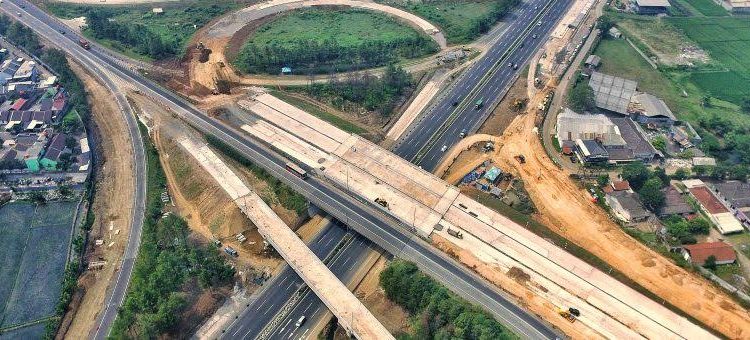Supporting Government’s Commitment to Continue Infrastructure Development
By: Almifa Fadhillah) *
The Jokowi-Ma’ruf government is committed to continuing infrastructure development. The existence of such infrastructure is believed to stimulate the economy so that it can increase the nation’s competitiveness.
Infrastructure development in Indonesia is currently in good condition, it would be very unfortunate if it stops just like that. Luckily President Joko Widodo made sustainable infrastructure development a priority in the second period of his administration. He is determined to continue infrastructure development, especially building infrastructure that connects production areas with distribution areas, which facilitates access to tourist areas, which boosts new employment, and which accelerates the added value of the people’s economy.
Infrastructure development is very important for the progress of the nation because it has broad effects. The availability of quality infrastructure will certainly open the door for new business entry and create new economic activities. For example the Cikopo-Palimanan Toll Road Development, after operating in 2015, the toll has a positive impact on the increasing number of tourist visits from Jakarta and surrounding areas to Cirebon on weekends and long holidays for cultural and culinary tours.
Not to mention the development of Trans Sumatra, Trans Java, Trans Kalimantan, Trans Sulawesi, to Trans Papua, which of course becomes an economic generating engine for the cities / regencies that are traversed. We need to know that from 2015 to 2018, our government has built 3,432 km of national roads, including border roads. While in 2019, our government will build an additional 409 km of new roads, so that the total road built up to 2019 will be 3,841 km. Not only are government roads also the construction of bridges, dams, high-speed trains, airports, cross-border posts, and many other developments that are important to be built for Indonesia Forward.
Infrastructure development must continue, of course, development that opens economic access and accelerates the added value of the people’s economy. Some people might argue that infrastructure development is not important because there are still many people who are starving. Some even questioned whether the government ordered people to eat asphalt. Everyone is free to have an opinion, but is not it better to examine the problem deeper before arguing.
It seems we need to understand together that one of the problems of hunger and poverty is the lack of economic access and not just the lack of food. We might be able to take the development of Papua as an example, in Papua in the past access was very difficult and connectivity between regions was still low, making logistical assistance from the government take a long time to reach the people, besides difficult access also made economic activity from upstream to downstream slow, access to tourist areas is difficult, so employment is limited, and economic growth is hampered.
But now with the Trans Papua road, access is easy, government logistical assistance can arrive faster, economic activity from upstream to downstream is not difficult, access to tourist areas is easy, so it is expected to boost new jobs, accelerate the added value of the people’s economy, and people are not worried about starving because they already have sufficient income.
Indeed, when talking about the benefits of sustainable infrastructure development, it will never end, because the multiple effects are very broad. Reflecting from developed countries like America, China, Japan, Korea, Dubai and others, of course it is equipped with sophisticated infrastructure with wide and fast access. The infrastructure that facilitates economic access is one of the reasons many investors and tourists come to invest or just visit.
Indonesia, with its rich natural resources and natural exotic gifts, will one day be able to defeat these countries. For this reason, we will jointly support the government’s priority program for sustainable infrastructure development for Indonesia’s Excellence, Advanced Indonesia.
) * The writer is a graduate student at Univ. Gunadarma
